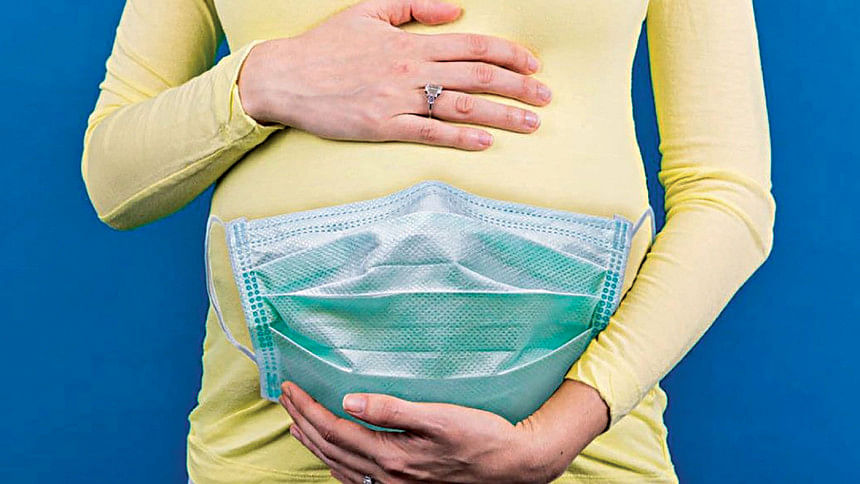COVID-19 positive mother and immediate care of newborn

Since the emergence of a COVID-19 was not previously seen in humans, there is little data on whether there can be a vertical transmission of the SARS-CoV-2 virus from a COVID-19 positive pregnant woman to her baby.
Mother to infant transmission includes intrauterine vertical transmission, from maternal blood and amniotic fluid contact during delivery, and postnatal infection, especially during breastfeeding. To confirm whether there is a vertical transmission or not, studies have been carried out to detect SARS-CoV-2 nucleic acid in breast milk, cord blood, amniotic fluid, vaginal swab, neonatal throat swab, faeces and urine sample of the newborns. The results showed that all the test samples were negative, suggesting a vertical transmission during pregnancy seems to be unlikely.
Furthermore, infants born to COVID-19 positive mothers may benefit from some degree of passive immune protection at birth from transplacental immunoglobin G (IgG) acting as a natural form of convalescent plasma transfusion. Even the immune system immaturity may be protective for neonates because much COVID-19 morbidity in older patients appears to be driven by the domino effect of the cytokine storm.
However, infected mothers can transmit the COVID-19 virus through respiratory droplets during breastfeeding. Thus, mothers with known or suspected COVID-19 should be confirmed to adhere to standard contact precautions during breastfeeding.
Since the virus has not been detected in breast milk samples by RT-PCR, therefore health care workers, concerned family members should protect, promote, and support early initiation and sustained breastfeeding in newborn to COVID-19 positive mothers. Breastfeeding has myriad health benefits ranging from decreased risks of breast and ovarian cancer for women to the development of a diverse intestinal microbiome for infants and lower infection risk in the first year of life and thus reducing morbidity and mortality. Breastfeeding creates a unique relationship between mother and child, thus reducing the length of hospital stay and the negative effects linked to quarantine and stress because of this pandemic viral outbreak.
Skin-to-skin contact started in the first hours of life is associated with reduced postpartum haemorrhage risk, decreased rates of postpartum depression and anxiety, and increased proportions of successful breastfeeding.
China has adopted an early policy of mother-infant separation for 14 days after birth, and avoidance of breast milk use until the mother has recovered from the infection. The American Academy of Paediatrics suggests the separation of a COVID-19 positive mother from her infant when possible and the use of expressed breast milk rather than breastfeeding. The World Health Organisation (WHO) supports skin-to-skin care, rooming-in, and breastfeeding initiation within an hour of birth for infants born to mothers with COVID-19 like all other newborns and routine newborn care with an added emphasis on respiratory and hand hygiene.
For a country like Bangladesh, experts are emphasising to adopt the consensus guideline of the WHO for a better newborn outcome. Let us promote and encourage exclusive breastfeeding and skin-to-skin contact ensuring proper protective measures to continue our efforts in achieving the Sustainable Development Goals (SDGs).
Dr Abdullahel Amaan is a Resident at the Department of Neonatology, Bangabandhu Sheikh Mujib Medical University, Bangladesh.
Email: [email protected]
Dr Khainoor Zahan is a Deputy Director at the Bangladesh National Nutrition Council (BNNC), Bangladesh.
Email: [email protected]

 For all latest news, follow The Daily Star's Google News channel.
For all latest news, follow The Daily Star's Google News channel. 



Comments